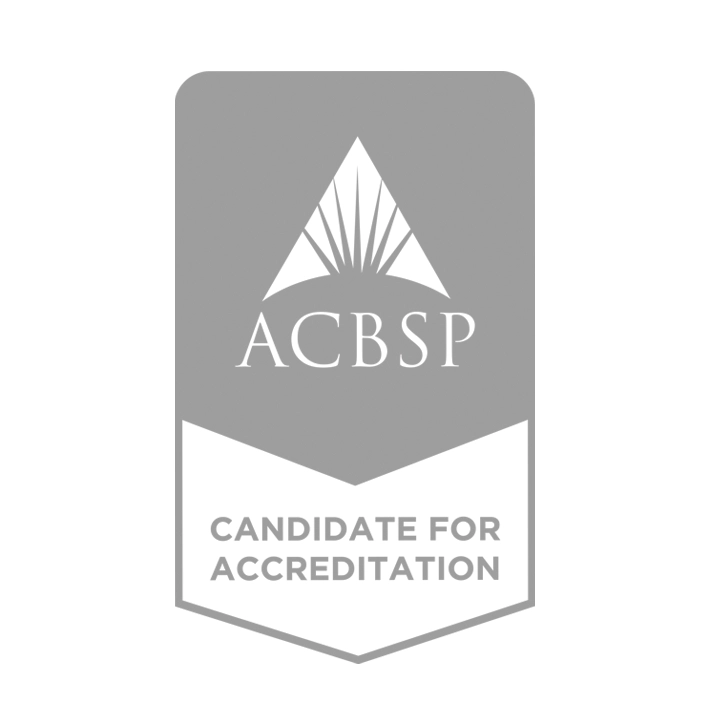

Business - Accounting
Overview
A two-year diploma program focused on developing practical skills and knowledge needed for a career in accounting, providing students with a shorter and more affordable pathway to enter the workforce or to pursue further education in accounting.
The two-year Business - Accounting program prepares students for a variety of entry level accounting positions in merchandising or manufacturing companies, public accounting, financial institutions, and not-for-profit organizations. Graduates of this program pursue careers as accounts payable/receivable specialists, payroll administrators, junior analysts or auditors, tax professionals and small business accountants.
Students receive a well-rounded education studying a variety of business courses along with important foundational accounting and finance courses. These courses include accounting theory and practice, management accounting, taxation and computerized accounting systems taught by Lambton's accounting faculty who bring a wealth of industry experience and all hold the Chartered Professional Accountants designation.
Admission Requirements
O.S.S.D. or equivalent with:
- Grade 12 English C or U
- Grade 11 or 12 Mathematics C or U
Mature Student Assessment for this program is available in the subjects of English and Mathematics for the purpose of demonstrating proficiency in these required admission subjects. For all other admission requirements, applicants must complete the required course(s) as listed above. For more information, please contact counselling@lambtoncollege.ca. Review the Mature Student Admission process.
Academic admission requirements can be obtained through Academic Upgrading and the Pre-Programs at Lambton College.
Accreditation Council for Business Schools & Programs (ACBSP)
This program has achieved ACBSP Candidacy status which means that this program aligns with global business standards and prepares you for success in your career.
ACBSP Candidacy signifies our commitment to high quality, industry relevant education, ensuring you gain not just knowledge but a competitive edge in the business world.

Costs
- Year 1 $4,732.63
- Year 2 $4,838.39
Please Note: These fees apply to the 2024-2025 academic year and are subject to change. Fees do not include books (unless specifically noted), supplies or living costs.
OSAP Eligible
This program is OSAP eligible. OSAP is a needs-based Federal and Provincial student loan and grant program that is calculated based on your personal financial situation and the cost of your education expenses. If you are registered as a full-time student (minimum 60% course load), you may qualify for assistance. OSAP does not always provide assistance to cover all of your educational and living costs.
Applications are now open for January 2025 and May 2025 - Apply Today!
Scholarships Available
There are 8 scholarships available for this program, with a total value of $1,000!
Technology Requirements
In order to keep pace with the requirements of each and every course in your program, Lambton College requires that each student have access to a laptop while studying at our college.
Courses
Accounting Theory & Practice I
This course is an introduction to the theory of accounting and the standard methods of record-keeping. Accounting principles and concepts are emphasized in the preparation of financial statements for both service and merchandising organizations. Topics covered, take the student through the entire accounting cycle and include preparing and posting journal entries for business transactions, adjusting and closing entries, inventory costing and valuation, merchandising transactions, payroll, and bank reconciliations. This course is designed to provide the accounting skills required in business and for those students who intend to pursue a professional accounting designation.
Workplace Communication Applications & Analysis
In today's management and administration workplace, having strong computer skills is essential. This course provides students with resources and guidance to develop skills in Microsoft Office applications, focusing on three key areas: Word, Excel, and PowerPoint. While learning about these programs, students develop skills in time management, accountability, and their ability to follow direction.
Critical Thinking & Writing
In this writing course, students respond to current issues and news articles via various styles of paragraphs and essays. Students practice thinking critically and organize and hone their writing to ensure clarity and correctness in their messages. Students explore different perspectives, and through synthesis, analysis, and response, strive for clarity of message and diplomatic expression of opinion based on fact. One of the pillars of Lambton College is a commitment to sustainability and equity, diversity, and inclusion, including Indigenization of the curriculum; where appropriate, readings in this course will reflect this commitment. Critical Thinking and Writing lays the foundation for a subsequent research-writing course.
Microeconomics
This course provides an understanding of how society chooses what goods and services to produce through an examination of the laws of supply and demand as well as how and for whom they are produced by examining the behaviour of firms, market structures and the distribution of income.
Business Mathematics I
This is a course in the mathematical concepts needed for success in the modern business world. We will study percentages, ratios and proportions, exponents; algebraic manipulation and solution of equations and equation systems; plotting, graphing and reading descriptive charts; deriving and presenting descriptive statistics.
General Education Elective
Accounting Theory & Practice II
This course is a continuation of ACC-1004, and it introduces additional and more advanced concepts. Topics covered include accounting for property, plant and equipment, and intangible assets as well as short- and long-term liabilities and the different forms of equity. Students will also learn how to report cash flows. This course is designed to provide accounting skills required in Business Administration and for those students who intend to proceed towards a professional accounting designation.
Communications for Business
This course provides students with the skills required for professional, written, and oral communications essential to business success and subsequent courses. Students will develop database and internet research skills; prepare professional written business communication; and create, practice and deliver professional oral presentations. Students will research and document borrowed information in a business report and will demonstrate critical reading and thinking skills.
Macroeconomics
This course provides an understanding of the role of economics in business decision-making through the study of the methodology of economics, the components of the Canadian economy, cycles in the economy, macroeconomic goals, the measuring of economic performance, and government intervention in the economy as government attempts to manage the economy.
Business Mathematics II
This course applies mathematical principles to problems of finance and probability. We will study simple and compound interest, annuities, bonds, project evaluation, laws of probability, and probability distributions.
Business Law
In this course, students are prepared for a business environment increasingly affected by laws. They learn how laws must be understood and applied by management in the conduct of business. They also learn how to analyze a business situation from a general legal perspective. Emphasis is placed on methods of dispute resolution, contracts, torts, employment law, methods of carrying on business, sale of goods, and marketing law.
General Education Elective (Select 2)
Intermediate Accounting I
This course covers more intermediate accounting topics by building on concepts from previous courses. Students are introduced to the differences between accounting and taxation.
Cost & Managerial Accounting
This course introduces managerial accounting concepts and terminology including the elements of a job costing system, the application of cost-volume-profit analysis the application of relevant costs to special decisions, including how they fit with the preparation of master budgets.
Financial Management I
This course provides an overview of financial management and covers financial statement analysis, forecasting, operating and financial leverage, working capital management, and sources of short-term financing. It provides a brief review of time value of money concepts as a stepping stone for capital budgeting decisions to be reviewed in Business Finance II. Some long-term financing valuation concepts are also addressed.
Business Statistics
This course is designed to provide students with an understanding of statistics. It includes regression analysis, probabilities and distributions, sampling, statistical estimation, and hypotheses testing.
Organizational Behaviour
This subject is an examination of the contemporary Canadian business environment including the organization, leadership and management decision process which influences the behaviour of individuals and groups. Increased global competition, technological change and the rising expectations of both employees and employers have underlined the need for improved and more effective leadership. This subject provides a better understanding of this process.
Job Search & Success
This course provides student with skills and knowledge to help support their career search and succeed in the workplace. Students align their personal skill set and goals to guide them on their career paths. They will learn how to effectively conduct a job search, build a professional and well-tailored resume and cover letter, and develop and practice interview techniques. Students will also develop their personal brand to help support effective career networking and aid in their job search. Teamwork and collaboration in the workplace are also discussed. Self-reflection is used to inspire insight and support their professional career journey.
Intermediate Accounting II
This intermediate accounting course is a continuation of ACC-3804, focusing on financial reporting and accounting concepts. It completes work on the asset side of the balance sheet and then looks at the liability and equity side. The Statement of Cash Flows is also prepared. Topics surveyed include property, plant and equipment, intangible assets, current liabilities, long-term financial liabilities, and shareholders' equity. After completing this intermediate accounting course, students will be able to apply this knowledge to identify, measure and communicate financial information.
Management Accounting II
This course builds on the fundamental concepts and applications of management accounting introduced in ACC-3204. Topics include budgeting for control and performance evaluation, process costing, pricing and reporting concepts, as well as variable and absorption inventory costing approaches. Use of relevant cost information for managerial decision-making is also covered.
Financial Management II
This course builds upon the theories and principles of managerial finance learned in Financial Management I. It introduces the student to the theories and principles of long-term financing decisions and capital budgeting decisions. The purpose of this course is to complete the introduction to the theory and principles of managerial finance.
Taxation I
This course introduces the student to the principles governing the Canadian income tax system as it relates to the individual taxpayer. Topics covered in this course include the following: who is taxable, income and deductions from employment, business and property income, capital gains and losses, personal tax credits and the calculation of taxes payable.
Computerized Accounting
This course introduces students to a multi-module accounting software program designed for small to medium-size businesses. Students will use the software and their knowledge of Generally Accepted Accounting Principles (GAAP) to create and maintain accounting records, including period end procedures and the creation of financial statements for sole proprietorships. Note: This course uses Sage 50
Critical & Ethical Decision Making
Students are introduced to business ethics, applied ethics, and social psychology. They will assess today's most important ethical dilemmas and the human behaviours that drive them. Students will recommend how to best navigate corporate landscapes, political influencers, and social contexts to ensure ethical decision-making.
General Education Elective
Have Questions?
If you have any questions about our online programs, the courses offered, the registration process, or any other Online Education related questions, reach out to us.
Contact
Online Education
Program Information
After Graduation
Employment Opportunities

Our graduates work in all sectors of business including banks and other financial institutions, government and agencies, public accounting firms, small businesses, tax preparation firms and financial planning firms. You may begin your career working in accounts payable, accounts receivable, payroll, cost accounting, general accounting, credit and collections, inventory control, budget analysis, financial accounting, management accounting or tax preparation.
Accreditations & Certifications
Chartered Professional Accountant Designation
This program provides access to important credentials. Students interested in pursuing the Chartered Professional Accountant (CPA) designation must meet specific grade requirements and transfer into the three-year Business Administration - Accounting program at Lambton College.
Bookkeeping
Students interested in becoming a bookkeeper may transfer some of their courses to complete the Bookkeeping Skills Board of Governor Certificate and/or the Canadian Institute of Bookkeeping.
Pathways
Transfer to Programs within Ontario
- Management & Organizational Studies
- Honours Bachelor of Interdisciplinary Studies
- Honours Bachelor of Commerce - International Accounting & Finance
Want to see more Ontario transfers? Visit ONTransfer.ca.
Transfer to Programs outside of Ontario
More Information
Prepare for Success
Variations due to Section
Remember to review the important dates associated with this program - some deadlines may be different depending on how your program is delivered and what section you're enrolled in.
Technology Requirements
It is recommended that students purchase a laptop with a Windows operating system.
Internet Speed Requirements
For best performance for students learning remotely, an internet connection with a minimum of 40 Mbps download and 10 Mbps upload speed is recommended in order to effectively use video conferencing and remote lecture delivery software as well as, other online resources remotely. Due to the large area over which students may be dispersed, we are unable to recommend a specific provider, so you will need to inquire around your area to find one that best suits your needs.
Minimum Laptop Requirements
In order to access the internet and virtually-delivered software and courseware, student laptops should include the following at a minimum. By meeting the following specifications, students will be equipped to access software and courseware on their laptop through the internet:
- Intel i5 8th Gen Processor or equivalent
- 16 GB of RAM (with a minimum of 8 GB)
- 100 GB HDD or more
- HD Graphics
- Webcam with a microphone
- Wireless 802.11n/ac 5ghz capable
- Windows Operating System (Windows 11)
Please note that Chromebooks and MacBooks may not support all software required for your program; students should verify compatibility with their professors.
Software
To ensure students are getting the most our of their classroom experience, some software will be required.
Lambton College has made this software easily accessible online. Students can leverage our Microsoft Office 365 software packages and services. In addition, much of the software you require for your courses will be available on demand for use on any device - on or off campus.